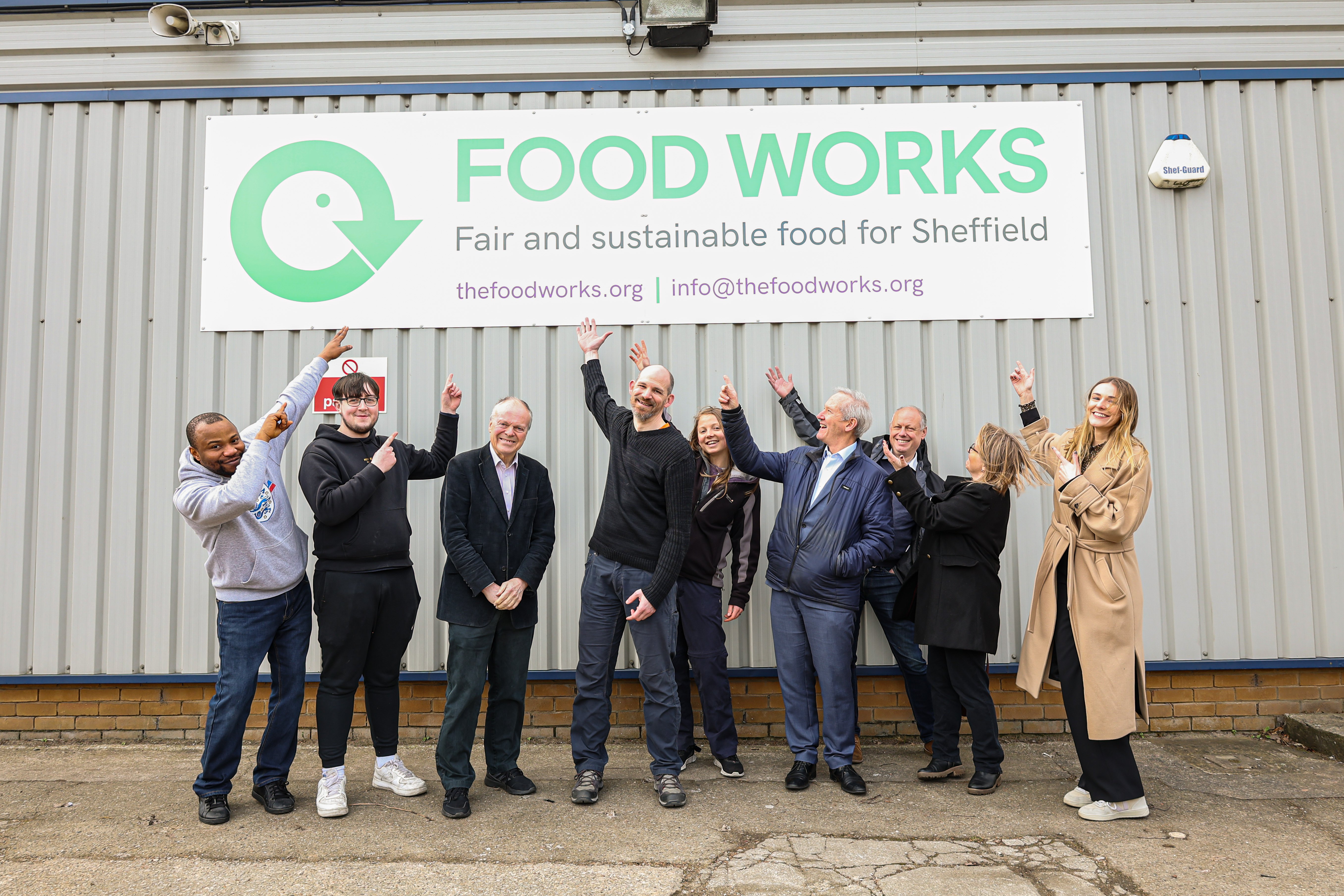The government has announced today (7 March) that the expanded Dormant Assets Scheme, which will unlock £880 million of forgotten money, will fund much needed investment into organisations tackling social problems in their communities including social enterprises and charities. In addition, the government has announced £31 million of immediate funding from dormant assets to help social enterprises and charities with the rising cost of energy and increased demands as a result of the wider cost of living crisis.
This decision follows an extensive public consultation last summer. A broad coalition from across the social, business and investment sectors came together to feed into the consultation and propose the Community Enterprise Growth Plan – with the goal of supporting social investment to reach places and communities that have not benefited to date. The plan - if fully supported by dormant assets - would create jobs, boost growth and address regional inequalities by unlocking new investment for community enterprises – the community-based businesses, social enterprises and trading charities taking entrepreneurial approaches to tackling social problems.
Today’s announcement creates the opportunity to implement the Community Enterprise Growth Plan by confirming that social investment will continue as a recipient cause of the scheme alongside youth, financial inclusion, and, a new cause, community wealth funds.
Social investment has enabled a vast range of organisations across the country to grow their impact and help more people. Examples range from a social enterprise which intercepts wasted food to provide affordable meals in Sheffield, to a Birmingham enterprise helping ex-prisoners find meaningful employment and a Doncaster based scheme providing affordable furniture to low-income families.
The £31 million funding injection, allocated under the current scheme, will enable community and social enterprises to install energy saving technology in their buildings and help them meet the growing need for their services as a result of cost-of-living pressures.
Marie-Claire O’Brien, Founder and Managing Director, of social enterprise New Leaf Initiative CIC commented:
“Our crucial work supporting nearly 1,300 people with convictions into work has received social investment twice now with the support of Dormant Assets. Most recently social investment has helped us to launch a new ethical recruitment agency which plans to place 100 clients into work in year one, and refurbish our training academy with upgraded equipment, employ an experienced tutor and create a graffiti wall that represents the journey of clients from institutions to employment. Not only that, but the friendly ear of social investors and words of encouragement, signposting, and advice - when times have been tough - have been invaluable, and supported our growth, and that of our clients, as a result.”
Nick Hurd, speaking on behalf of the Community Enterprise Growth Plan coalition, said:
“The Government’s announcement is good news for communities up and down the country. The long-term flow of further dormant assets will provide the finance charities and social enterprises need to help those most in need, including in some of the places most affected by long-term economic decline and most at risk from the cost-of-living crisis.
“Over the last decade, in a large part due to the pioneering investment from Dormant Assets, the amount invested in UK charities and social enterprises has grown tenfold with more than £7.9 billion invested in thousands of mission-led organisations working to tackle social and environmental challenges in our communities.
“There is now the opportunity to build on this – through the delivery of the Community Enterprise Growth Plan - expanding the tools and support available to charities and social enterprises and using the social investment infrastructure built over the last 10 years in new ways.”
Seb Elsworth, Chief Executive of Access – the Foundation for Social Investment said:
“There are thousands of projects that have benefited from Dormant Assets to date - many of which are small, community led organisations. Supporting charities and social enterprises through social investment in a myriad of ways - be that helping a community building to make energy saving improvements, launching a new service that will support service users in new ways and generate new income or simply keeping the wolf from the door - providing working capital and helping to maintain vital services in a changing economic environment.
“Further allocations of dormant assets will expand this investment and drive support to communities that have not benefited to date, including places and communities not well served by mainstream finance. This could and should include taking approaches that build on tried and tested mechanisms such as enterprise grants, business support and non-profit community lending.
“But we also know that many charities and social enterprises are being asked to do more with less right now – the £31 million allocation from the Dormant Assets Scheme will help those struggling with rising energy bills by supporting organisations to be more energy efficient and those looking to meet increased demand for their services as a result of the cost-of-living crisis.”
He added “We are pleased to see the addition of Community Wealth Funds to the existing causes – both are needed to support communities in different ways – and we look forward to giving our support to this important idea as it becomes a reality.
Stephen Muers, Chief Executive of Big Society Capital said:
“This is an important step and we welcome the commitment from the government to continue to supporting the enterprises and communities that are helping those most in need at a critical time.
“The social investment infrastructure is already in place, meaning we will be able to deploy funds at pace. And because it catalyses private and philanthropic investment alongside, we can make this money go much further. For example, every £1 from the dormant asset scheme to-date spent on social investment has unlocked another £3 from other investors.”
Ends
Notes
Big Society Capital CEO Stephen Muers and Access CEO Seb Elsworth available for interview.
MP interview/comment
We have several MPs championing social investment to access the funding including Birmingham Mayor Andy Street, Rushanara Ali MP and Nick Hurd that might be available to provide comment/a quick interview piece on the upcoming announcement.
Case studies
We can offer interviews with the inspiring founders of social enterprises that have used social investment to achieve extraordinary results –
- New Leaf in Birmingham is founded and run by ex-prisoners to help people who have been through the criminal justice system get back into work. They’ve helped 1,300 people since 2016 and recently took on £120,000 in social investment to grow their ‘Ethical Recruitment’ business.
- Food Works in Sheffield used social investment to kick start its critical work intercepting food waste and distributing it to local people on contribute-what-you-can-afford basis. It intercepts 500 tonnes of food waste every year, and serves more than 5,000 people every month.
- Doncaster Refurnish is a furniture recycling and training social enterprise. Established over 20 years ago, they are based in ex-mining communities, many of which are ranked in the top 10% most deprived in the country. They collect unwanted furniture from households, then repair and sell to people in need at very low prices. It recently took on social investment to install LED lighting, which will dramatically reduce their energy bills and help them tackle cost-of-living.
- TellJO uses technology to tackle the root causes of debt and prevents crisis situations such as arrears and homelessness. They work with Councils to provide digital wellbeing assessments to their residents via the resident’s smartphones. A missed Council Tax payment triggers a message from TellJO asking ‘Are you ok?’ – the conversation that follows covers around 90 questions and 63 indicators of vulnerability.
Dormant Assets Scheme
The existing Dormant Assets Scheme enables banks and building societies to channel funds from dormant bank and building society accounts towards good causes. The Scheme is led by industry and backed by the government with the aim of reuniting people with their financial assets. Where this is not possible, this money goes towards social and environmental initiatives across the UK.
The Dormant Assets Scheme has already unlocked more than £800m for good causes across the UK. It is a rare example of collaboration between the public, private and civil society sectors, with up to £1 billion expected to flow to good causes under an expanded scheme. Uniquely, the Scheme provides long-term, flexible funding that enables expert organisations to focus on creating positive systemic change.
Under the existing scheme, funds flow via social investment wholesalers – Big Society Capital and Access – the Foundation for Social Investment – to charities and social enterprises, ensuring they can access the appropriate forms of finance they need to thrive.
The scheme is set to be expanded - including assets from the insurance and pensions, investment and wealth management, and securities sectors for the first time - following a consultation on the causes that should benefit from the scheme in England.
Community Enterprise Growth Plan
https://www.communityenterprise.uk/
The Community Enterprise Growth Plan would provide urgently needed finance to charities and social enterprises that are helping those most in need, including in some of the places most affected by long-term economic decline and most at risk from the cost-of-living crisis.
Supported by a broad coalition of business groups and social enterprise and charity representative bodies, the Community Enterprise Growth Plan would use the social investment infrastructure built over the last ten years in new ways to invest in community enterprises – the community-based businesses, social enterprises and trading charities taking entrepreneurial approaches to tackling social problems.
This plan would use new Dormant Assets to deliver three proven interventions that reinforce each other:
- Extending the availability of small, flexible affordable loans to smaller community enterprises through blended finance – this is using a mixture of grants and loans which has proved highly effective particularly for enterprises in the most deprived communities.
- Investing in non-profit community lenders in underserved areas to enable them to lend to the vital micro-businesses and community enterprises that struggle to access lending from mainstream banking.
- Providing tailored business support including advice to start-ups and innovative incentives like match trading to encourage small enterprises to grow in more challenging areas.

Andy Street MP (far left) with New Leaf recipient (centre) plus New Leaf founder (right)

Clive Betts MP (second from left) and Food Works CEO Rene Meijer (third from left) join staff from Food Works, Big Society Capital and Key Fund outside Food Works’ Handsworth ‘market’ – where food is delivered and stored